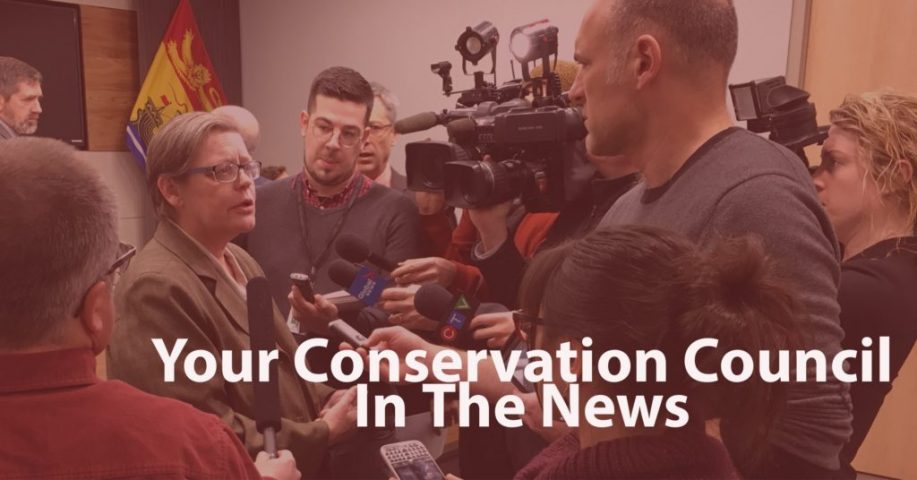Conservation Council consultant Louise Comeau welcomed comments Premier Blaine Higgs made about climate action following the results of Monday’s federal election.
Higgs told reporters on Tuesday, Oct. 22 that “the country has spoken” on a price on pollution and that his provincial government will “have to find a way in New Brunswick to make it work.”
Check out these great resources to help wrap your head around carbon pricing in New Brunswick
The next day, however, the premier fell back into spreading misinformation about how carbon pricing works and what it will mean for New Brunswickers during an interview with CBC Information Morning. Our consultant Dr. Louise Comeau was quick to correct the premier during the show.
Later in the day, Comeau spoke to reporters about options the premier has for implementing an effective price on pollution for consumers and industry in the province.
Read CBC reporter Jacques Poitras’ story with Comeau here.
Watch Comeau on CBC New Brunswick’s Evening News broadcast here. (Segment starts around 17:30 mark).
[arve url=”//www.cbc.ca/i/caffeine/syndicate/?mediaId=1629547587905″ /]
Listen to Comeau’s conversation with CBC Information Morning Fredericton host Terry Seguin here.
Watch what Comeau told CTV Atlantic reporter Laura Brown here.
Read Global New Brunswick’s story with Comeau here.
Comeau also spoke to Fredericton Daily Gleaner political reporter Andrew Waugh in an article published Thursday, Oct. 24. An excerpt from that story follows:
New Brunswick needs to take a collective breath before starting a new conversation on climate change and the carbon tax, says the Conservation Council of New Brunswick.
And then – according to Dr. Louise Comeau, a consultant to the council and researcher at the University of New Brunswick – it’s time to stop “resisting federal policy” and “urgently” implement New Brunswick’s existing climate change action plan, while potentially adding a home-grown carbon tax.
Comeau was reacting to comments made Tuesday by Premier Blaine Higgs, who publicly mused about introducing a provincial version of the federal carbon tax because voters in New Brunswick had shown their support for it by voting in six Liberals in Monday’s federal election.
“The election clearly sent a signal – voters want stronger climate action,” Comeau said.
“So the comments from the premier over the last couple of days represent an opening … that we maybe have an opportunity to take a breath and start a new conversation on how we’re going to deal with climate change.”
She later added: “I respect the premier, and I respect what it is he’s trying to do.”
Comeau was supportive of the premier’s suggestion that a made-in-New-Brunswick carbon tax might be a better choice than continuing with the current one, a federal “backstop” imposed by Ottawa earlier this year. She noted a home-grown plan would allow the province to have more control on how carbon tax cash would be spent.
And with the federal government likely busily appointing new ministers and readjusting to its new reality, there’s a chance to do some homework before Ottawa ramps up again, she said, adding a summit of Atlantic premiers to discuss regional collaboration on the file would also be a good idea.
“I would say the premier has an opportunity in the next couple of months to really rethink what we’re going to do in New Brunswick. We’re happy to help – call together your stakeholders to look at what your opportunities are,” Comeau said.
Higgs welcomed the comments, and said the suggestion of a summit was a “good idea,” but added a caveat about the importance of a gradual transition to a green economy.

